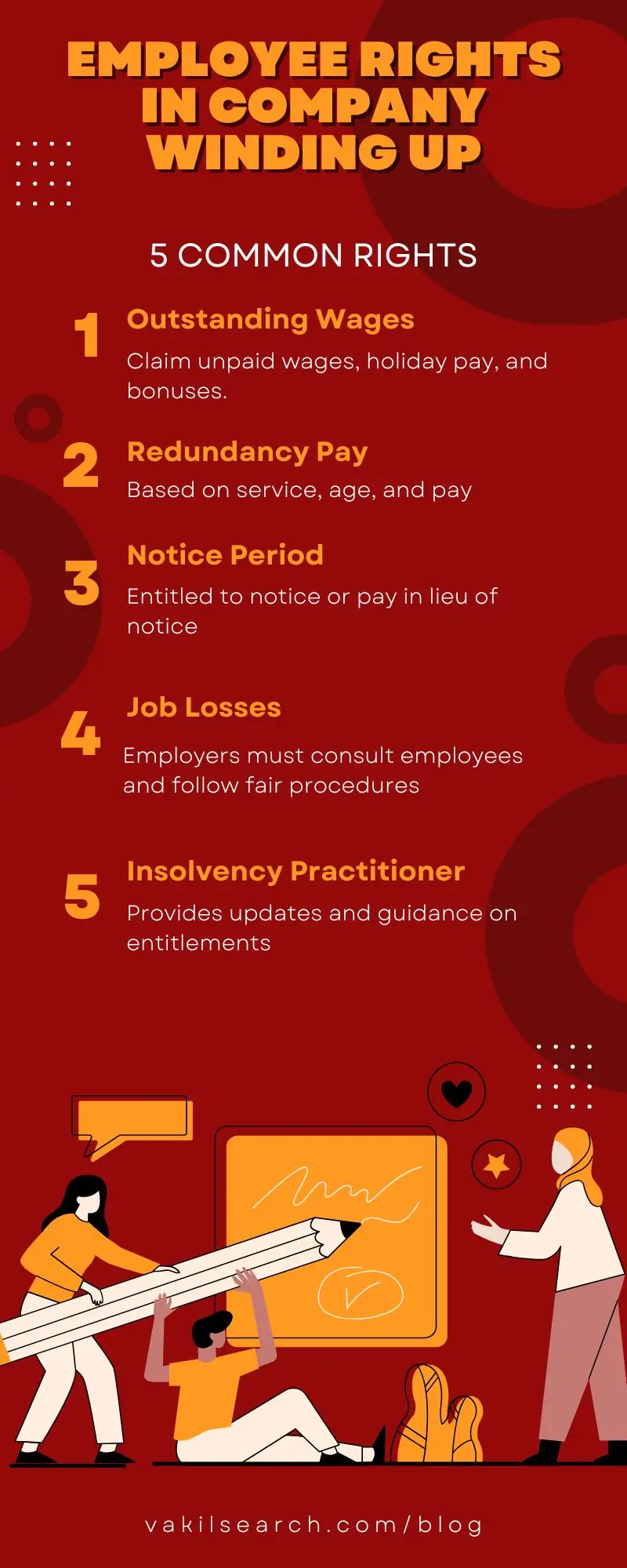When a company goes into liquidation or winding up, employees are entitled to certain rights and entitlements. These include payment of outstanding wages, redundancy pay, notice period, and the right to be consulted in the event of job losses. It is important for employees to seek legal advice to ensure they understand their rights and options during this process.
Overview of Employee Rights and Company Winding Up
When a company goes into liquidation or winding up, it means that the business is ceasing operations and its assets are being sold to pay off its debts. This can have significant implications for employees, who may be made redundant or have their employment terminated as a result.
In this situation, employees have certain rights and entitlements that they should be aware of. These include the right to receive any outstanding wages or salary, as well as any other entitlements such as holiday pay, overtime, and bonuses. If the company is unable to pay these amounts, employees may be able to claim them from the government.
Employees who are made redundant as a result of the company’s winding up may be entitled to redundancy pay. This will depend on their length of service, age, and weekly pay. Employees are also entitled to receive notice of their termination of employment, as well as any accrued notice period pay.
Employee Rights and Company Winding Up
When a company goes into liquidation or winding up, it can have significant implications for its employees. Here are some of the key employee rights and considerations in this situation:

Payment of outstanding wages: Employees are entitled to receive any outstanding wages or salary, as well as any other entitlements such as holiday pay, overtime, and bonuses. In some cases, employees may be able to claim these payments from the government if the company is unable to pay.
Redundancy pay: If an employee is made redundant as a result of the company’s winding up, they may be entitled to redundancy pay. This will depend on their length of service, age, and weekly pay.
Notice period: Employees are entitled to receive notice of their termination of employment, as well as any accrued notice period pay. This may be paid out as part of their outstanding wages.
Job losses: Unfortunately, the winding up of a company can result in the loss of jobs for employees. Employers have certain obligations to consult with employees and their representatives and to follow a fair process when making redundancies.
Insolvency Practitioner: Employees should be informed of the appointment of an insolvency practitioner and the process that will follow. The insolvency practitioner is responsible for managing the winding-up process, and employees may be able to seek advice from them about their entitlements and options.
Employees need to seek legal advice if they are unsure about their rights and entitlements in the event of a company winding up.
Benefits of Employees Under Government on Losing Jobs
When employees lose their jobs due to factors such as redundancy, restructuring, or business closure, it can be a stressful and uncertain time. However, there are several benefits that employees may be eligible for under the government, which can help ease the financial burden and provide some support during this period of transition. Here are some benefits that employees may be able to access:
Unemployment benefits: Employees who lose their jobs may be eligible for unemployment benefits, also known as Jobseeker’s Allowance. This provides financial assistance to help cover living expenses while they search for new employment.
Redundancy pay: If an employee is made redundant, they may be entitled to redundancy pay. This is a payment made by the employer to compensate for the loss of employment and can help to provide some financial security during the transition period.
Training and education support: The government may provide training and education support to employees who have lost their jobs. This can help them to acquire new skills or qualifications and improve their chances of finding new employment.
Health and well-being support: Losing a job can be a stressful experience, and the government may provide support for employees to access mental health services, counseling, or other forms of well-being support.
Conclusion
In conclusion, when a company goes into liquidation or winding up, it can have significant implications for its employees. However, employees have certain rights and entitlements that they should be aware of, such as payment of outstanding wages, redundancy pay, notice period, and the right to be consulted in the event of job losses. Employees need to seek legal advice to ensure they understand their rights and options during this process. Additionally, the government provides benefits such as unemployment benefits, training and education support, and health and well-being support to employees who have lost their jobs, which can help to provide some financial and emotional support during this difficult time. Overall, understanding and asserting employee rights is crucial in ensuring a fair and just outcome for all parties involved in the event of a company winding up.




